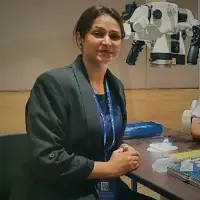Why Indian Students Choose Russia for MBBS
Each year, thousands of Indian students decide to complete their MBBS degree in Russia. However, it is not solely the MBBS in Russia lower cost or easier admissions that draws them in–it is the mixture of hope and sense of adventure. For many, it is about pursuing a dream that remains difficult to achieve because of the overwhelming competition and the limited availability of seats in Indian colleges.
While interacting with Indian MBBS students in places like Moscow, Kazan, or Volgograd, one can easily notice the recurring theme of ‘bittersweet experience.’ It begins with overwhelming optimism and later shifts to maturity and conversion. Often, it is the first time some of them are traveling abroad. The landing in Russian cities during winter is extraordinary enough, but sub-zero temperatures and a completely different vibe make it nothing short of supernatural.
A large number of students struggled to adjust to the new world. Determined and financially supported by their parents, it felt like a discouraging challenge. While many attest that it is a transformative experience, it is difficult to deny that the journey is filled with steely resilience, independence, and flexibility. Regardless of the outcome, the journey is guaranteed to be filled with unpredictable, brave, and fascinating memories.
First Impressions Upon Arrival
Cultural Shock and Initial Struggles
Being 17 or 18 and arriving in a country with signs and menus in Cyrillic and facing -10°C on the very first day. For most Indian students studying abroad, that’s how their first days in Russia feel. The level of culture shock is frightening.
Seniors often talk about the confusion that washes over them in the first week of classes. Language or lack thereof, long immigration lines, new architectural styles, intense cold, among many others. Simple activities like going out for groceries seem forbidding for some.
For many students, this challenge goes hand in hand with the struggle of missing home, family, and other familiar comforts. And life in hostels as an international student comes with its own set of complications. While some universities offer good facilities, others may have basic housing that feels small and cold.
All of these changes can feel overwhelming; students are often challenged with a bureaucratic web of sorts – university registrations, visa renewals, medical exams, acquiring a new phone number, and even setting up a bank account.
Thankfully, senior Indian students help during this transition period. Indian students seem to lovingly recall how other Indians pick them up from the airports, help them with groceries, or even act as translators at local pharmacies.
Hostel, Surroundings, and First Classes
The hostel transforms into a home, ever so comfortable yet confused. Indian students describe sharing rooms with other international students as both a problem and a learning opportunity. Living with people from different cultures, customs, and languages requires a lot of acceptance.
The first day of classes is usually exciting and horrible at the same time. Students are laid out by the modern infrastructure: the digital whiteboards, anatomy labs, and organised lectures. However, the teaching methods seem different. Professors maintain a formal approach, and independent work is heavily emphasized.
For most Indian students, the “settling in” phase typically lasts for about a month. They learn the metro routes, look for food stores, and even find cozy little cafes. WhatsApp groups become sources of sharing notes for newcomers or slowly complaining about the hectic days.
Language and Communication Challenges
Russian Language in Daily Life
This is one of the primary challenges for Indian students. Most universities offer an MBBS program in Russia in English language, but that only applies to the classroom. Outside, everything is in Russian—bus signs, describing symptoms to a pharmacist, or any pertinent interaction.
Students recall picking up basic Russian phrases in a few weeks. Many take additional Russian language courses offered by the university. The difficulty is palpable getting your phone fixed or asking locals for directions, but the reward makes the effort worthwhile.
Several funny and frustrating accounts come up, such as the student who told the class that she attempted to order “cucumber ice cream” at a shop because her translation app told her it was something else. There was also someone who shared the experience of being caught in a metro for three hours because the only available announcement was in Russian.
Experience During Clinical Rotations with Language Barriers
Things get more complicated with hospital postings. Most Russian patients do not understand English, creating a problem when interacting with them during clinical rounds. Students have to depend on overusing a player or their very limited understanding of Russian.
Undoubtedly, most Indian students here feel that their confidence takes a dip during these hospital interactions because of the language difference. However, most students in the third year can handle conversations, really mostly in terms, and a few fluent speakers emerge.
In any case, the language challenge remains one of the toughest hurdles they have to face. Some universities do better than others in providing adequate support for foreign students through bilingual staff or training them on how to interact with patients.
Also Read:-
- MBBS in Russia Under 15 Lakhs for Indian Students
- Cost of Living in Russia per Month in Rupees for Indians Students
- Medical Colleges in Russia for Indian Students Fees
- Study MBBS in Russia Lower Priced 2025: Fees, Eligibility, Admission
- How Much NEET Score is Required for MBBS in Russia
Academic Journey
Indian Students’ Perspective on Teaching Styles
It is the teaching methods that Russian instructors use that Indian students in the beginning have to slowly adjust themselves to guess as the teaching style. They claim these methods are ‘more self-guided’ with less hand-holding. Make no mistake, the guide’s expectation is that reading will be done before lectures, students will show up ready, and raise their hands during the lessons.
Compared to Indian coaching-centric environments, Russian classrooms are quieter, featuring fewer questions and more speech and one-on-one dialogues. Students who are used to rote memorization processes typically struggle during the initial phases of adaptation. Nonetheless, they gradually learn to enjoy the level of understanding this new method provides.
Practical sessions are well accepted. As highlights, Indian students have real-time access to body, detailed anatomy models, and a multitude of regular lab exercises. There are still challenges to learning these concepts.
Assignments are constant, and internal evaluation is conducted with strictness. Students cannot skip classes and must be physically present in the classroom. Absences can affect marks in final exams. This form of rigidity comes as a shock to some students, but everyone eventually adjusts, as this enhances discipline.
Life Inside the Campus
Daily Routine of Indian Students
For an Indian MBBS student in Russia, daily life involves a blend of accounting for academic activities alongside adapting to the local culture. Classes tend to start around 9 AM, but students are awake early to get ready—the worst winters make getting out of bed a contest. Dressing up in thermals, gloves, and jackets becomes a habit.
Most of the universities operate lectures in a teaching shift: lectures, practicals, self-study, and lab sessions. The Indian students describe their daily academic timetable as jam-packed, though they do remark that almost all students get used to the system quickly. Attendance is emphasized, and being late means losing irreplaceable credits; punctuality is rooted quickly.
Between Indian lunches and custom-made speedy meals, students enjoy eating in cafeteria areas or retreat to their dorm rooms for self-cooked meals. In the evenings, many students focus on self-study, online FMGE coaching classes, study groups, or lesson revisions. A lot of students mention how this routine instilled in them discipline and time management skills they didn’t have back home.
Weekends are dedicated to hostel cleaning, grocery shopping, making phone calls to family, or watching Indian movies shared on laptops. Some students also take this opportunity to discover the city, visiting parks and museums, or walking around town, enjoying the snow-covered streets while getting familiar with their new surroundings.
Despite the tight schedule, a lot of Indian students say that they naturally start to appreciate the rhythm. Chai breaks, preparing notes, and assisting one another in viva prep bring about camaraderie. Eventually, the routine transforms from something to endure to something strangely soothing.
Campus Environment and Peer Interactions
A considerable portion of the population in many Russian universities is Indian students, and this presence impacts the campus in interesting ways. Most of the universities accommodate international students from Nigeria, Egypt, Sri Lanka, Nepal, and China. This kind of diversity helps Indian students access different viewpoints and make friendships from different cultures.
While language barriers do exist, students often combine English, Russian, and sign language to communicate with their international counterparts. Most find these social experiences enriching as they learn about other cultures, cuisines, and philosophies.
Professor-student relationships in India are generally considered respectful and supportive, but some students report a lack of warmth in initial encounters, which is usually reciprocated with time and consistent performance.
For Indian students, a mind-blowing experience is much autonomy that university life in Russia has. There’s no hand-holding; students are expected to keep track of their lectures, deadlines, and when it might be the right time to seek help. Transitioning from the dependent schooling system back home leads to personal growth and self-reliance.
Food and Cuisine Adjustments
Missing Indian Food: What Students Really Eat
One of the most debated points among Indian MBBS students in Russia is food—or rather, not finding Indian food in Russia. The Russian palate is very different, preferring bland flavor combinations, potatoes, meat, and bread. For students used to the intensity of masalas in their curries, dal, or parathas, the wait for an adaptation is long.
The first few weeks see many try to endure by eating inanely in the university canteen or daring a few Russian dishes like borscht (beet soup), pelmeni (dumplings), and kasha (porridge), but the craving soon sets in.
This is when cooking usually takes an opportunity. Almost every Indian hostel room is kept stocked with masalas, rice, lentils, and pressure cookers. Students either bring these necessities from India or go to some Indian grocery store in a Russian city like Moscow or Kazan, or Kursk itself.
More often than not, you would find Indian students sharing recipes, learning how to make paneer from scratch, and even setting up cooking clubs. Some hostels also allow shared kitchens, and students plan menus for the week along with roommates. A few others become mini chefs during the long winters, churning out batches of paranthas, biryani, and chai just to prevent homesickness from overwhelming their spirits.
Though it may be a bit difficult trying to get food, some students perceive cooking as a survival method. Gradually, they somehow find ways to enjoy both Indian and Russian food- sometimes even blending the two!
Cooking in Hostels and Access to Indian Groceries
Basic kitchen accommodations are set up by most universities. Indian students usually bring along pressure cookers, cooking utensils, and their most essential spices from India. The first time it may appear a bit of a bother- one must cook after coming from classes for 6 hours straight!- but then such activities soon become a bonding experience.
In cities with a big Indian population, you will also find stores selling everything from Maggi noodles to MDH masalas. Some big supermarkets may have Basmati rice or frozen Indian snacks in their stock, too. Usually, students chip in money and buy in bulk.
Some cities, however, have what are called Indian restaurants or Indian dhabas, though a bit on the expensive side. Indian students during Diwali and Holi get together to prepare feasts and celebrate, in effect, bestowing a taste of home into their temporary life in Russia.
Social Life and Community Support
Indian Student Groups and Celebrations
Indian students keep the cultural spirit alive despite being so far from home. Each university with a sizable Indian population usually has Indian student associations or WhatsApp groups to organize events, inform the community, and support the new arrivals.
Such groups are a great support in settling into Indian student life, offering airport pickups, hostel allocation help, and guidance to the local set-up. It creates an environment of family away from family.
Great are celebrations: From Ganesh Chaturthi, Diwali, Holi, Independence Day, to Republic Day, it is all celebrated. Hostels become mini-festive grounds with lights, music, and homemade cuisine. It is from inside these experiences that bonding occurs.
Students are also kept busy planning cultural nights, Indian food festivals, cricket tournaments, and film screenings. It is through these activities that bonds form, easing the pressures of student life.
Making Friends from Other Countries
Interaction is worthwhile for the Indian student community and eye-opening. Initially, Indian students stick to their circles but gradually loosen up. Study groups now and then include friends from Nepal, Sri Lanka, or African countries.
For some Indian students, this ranks as one of the most rewarding aspects of their Russian sojourn. They learn about other cultures, religions, and philosophies while simultaneously explaining their own culture. Some students said they had spent Christmas with a Russian family, while others mentioned celebrating a Norwegian friend’s birthday by preparing biryani, an Indian rice preparation.
Such friendships are socially helpful but academically rewarding too, as students exchange notes, share exam tips, and sometimes even go together for the FMGE preparations.
Financial Realities
Managing Expenses and Budgeting
One of the first hurdles Indian students in Russia have to scale is the financial issues. For most, it is the very first time that they will be managing the money themselves. Food, local travel, phone bills, and maybe a Hollywood movie or two form the monthly budget. Most students say they might be budgeting anywhere between $100 and $150 a month.
Senior students who have been in MBBS in Russia for a few years generally act as mentors in teaching juniors how to stretch their rubles. Buying groceries in bulk, getting transport passes, and cooking at home can help save quite a few rubles.
Still, most funding comes from parents, while students learn money-saving skills. Many maintain records of expenditures through an app or Excel sheets. Others on campus can work part-time (e.g., help in the library, tutor peers), though this possibility is limited.
Where Russia is cheap, a course in the currency or even an urgent need for winter clothes or medical expenses might come as a pause. Most but say that with proper planning and support from family, one can manage.
Winters and Weather Adjustments
Surviving the Cold: Students’ Tips and Tricks
Winter in Russia is strange: for many Indian students, it is an experience that changes one’s very life. With temperatures plummeting down to -30°C in certain areas and snowfall continuing for months on end, such occasions are nothing short of extreme for students hailing from cities like Chennai, Mumbai, or Hyderabad.
The very first winter is the worst. Students share accounts of slipping on ice, taking ages to put on their heavy winter clothes, and having to deal with frozen water pipes. The biting cold affects everything, traveling to college, attending morning classes, and overall mood!
With time, students learn a few tricks of the trade- thermal liners, fur-lined boots, heat pads, and the ever-important “layer up” strategy. Keeping a stock of dry fruits and hot soups for times of desperate need is the way to go. They would also urge the investment in quality winter wear available there in Russia, much in tune with the climate.
Dressing, Health, and Daily Commute Issues
Winter dressing is a monotony of sorts- thermal inners, sweaters, jackets, gloves, mufflers, woolen socks, and snow boots. And yet, there are those days on which it is almost impossible to bear. The students have to battle against the seasonal flu, which comes along with dry skin and a lot of vitamin D insufficiency.
Most students take flu shots and welcome humidifiers in their hostel rooms to keep their health in good standing. The universities generally maintain clinics to assist in times of sickness.
Winters make commuting slow. The buses and metros are heated, but it takes all the effort to walk through the snow. To avoid falling and slipping or to avoid being late, students leave early. Despite these and other adversities, many Indian students agree that surviving a Russian winter molds one’s mentality and adaptability.
Experiences of Indian Students MBBS in Russia
 Ananya Pandey Kazan State Medical University, 4th Year Kazan State Medical UniversityKazan State Medical University provided me with a quality education at one-third the fee of a private college in India. The practical exposure is excellent here, and the professors are very supportive. Yes, the weather was a bit challenging initially, but you get adapted to it fast. I have made so many friends from all around the world, and I am confident I will clear FMGE once I graduate. |  Rajesh Mukherjee Volgograd State Medical University, Graduate 2020 Batch I graduated from Volgograd State Medical University in 2020 and cracked the FMGE the second time around in the same year. The clinical exposure from Russia was just the right kind. Russian professors emphasize practical skills, which proved helpful with my internship in India. And with education being cheaper in Russia for all my years as compared to just two years of private education in India, I am now working in a government hospital in Bihar after an internship. |  Priya Garg Crimea Federal University 3rd Year What drew me to Crimea Federal University were the beautiful, lush green campus and inexpensive tuition fees. The weather is also much lighter here, compared to other Russian cities. I love the diverse student community; I have friends from over 20 countries. The university has an Indian mess where vegetarian food is served, which is a tremendous relief. I am preparing seriously to build a good base to clear the FMGE post-graduation. |
 Ravi Gupta Kazan University In the beginning, it was tough due to language and interfaces. Now, it’s home! |  Pooja Sharma Volgograd State Medical University It is the practical exposure. We are in hospitals from the third year itself. |  Rahul Bashkir State Medical University I found my second family here. We celebrate Holi and Diwali and even cook Indian food together! |
 Anjali Kazan State Medical University A third-year student of MBBS at Kazan State Medical University says the university excels in both academic support and practical training. She values the multicultural student and the numerous learning opportunities from experienced faculty members. |  Rajesh He is a final-year student at the Russian National Research Medical University and asserts how less studying in Russia costs. According to him, the relatively lower tuition fees and cost of living had made it possible for him to study medicine and realize his dream without undergoing extensive financial strain. He, too, appreciates the multicultural environment of the university since he has friends from around the globe and a wider view of things. |  Sapna Anastasia First Moscow State Medical University An NRI student from Kenya taking her studies at First Moscow State Medical University shares her experience of settling down in Russia. She said that the initial adjustment was not that easy; however, with a warm welcome from the university and students who accepted her, it got better. She soon learned that during such culture change periods in people’s lives, they should remain open-minded and embrace the different ways of doing things. |
Conclusion
While an Indian student pursuing an MBBS in Russia may describe it as an academic journey, it is indeed a life-altering experience that instills in them the traits of character, resilience, and perspective. Starting with dreams of wearing their white coat, it soon turns into a lesson in independence, adaptability, and cultural immersion.
There are many challenges Indian students face—from language barriers, severe winters, and homesickness, to adjusting to the diet. But what stands out then is their ability to embrace change, help one another, and answer to the challenges by getting stronger with every passing semester. Their stories are filled with struggles and laughter at shared meals, warmth in cultural celebrations, and lifelong friendships forged across borders.
The Russian system of medical education is demanding, focusing primarily on the theoretical input of practical knowledge and discipline, but rewarding equally. Students emerge not only as competent doctors but also as well-rounded persons who will soon embrace global opportunities.
These lived experiences provide a realistic peek into what the journey ahead looks like for those following in the same footsteps. It is not always easy-but worth it, and somehow with all its quirks and its winds, Russia begins to feel like home. An unforgettable chapter remains with the Indian MBBS students in their journey toward becoming healers.
FAQs
Is it difficult for Indian students to adjust to life in Russia while studying MBBS?
Right, initially. Language, food, and weather were the real deal adjustments. But most Indian students tend to settle in well within two months, especially with the help of Indian student circles forming wherever in Russia they have landed.
How do Indian students handle the language barrier in Russia?
The medium of instruction continues to be English, and hence, Russian is the language of day-to-day life and clinical practice. Students usually get to attend basic Russian language classes and gradually improve their Russian through social interaction and immersion.
Do Indian students face racism or discrimination in Russia?
Isolated rare cases are reported. Most Indian students are said to be feeling safe and accepted, especially in cities that have a good population of international students.
How do students manage Indian food in Russia?
Many hostel kitchens allow the residents the liberty of grocery shopping at Indian grocery stores, if they like to prepare their own meals. Some cities also boast the presence of Indian restaurants and catering classes run by senior students.
Are Indian students able to crack the FMGE/NExT after studying in Russia?
Yes, but it does require dedication. Most students prepare after the 4th or 5th year, using online coaching platforms, study groups, and mock tests.




DealerShadow
November 8, 2025https://t.me/pt1win/22
PokerPhantom
November 9, 2025Актуальные рейтинги лицензионных онлайн-казино по выплатам, бонусам, минимальным депозитам и крипте — без воды и купленной мишуры. Только площадки, которые проходят живой отбор по деньгам, условиям и опыту игроков.
Следить за обновлениями можно здесь: https://t.me/s/reitingcasino
DealerShadow
November 10, 2025https://t.me/s/iGaming_live/4548
LuckyBandit
November 12, 2025https://t.me/s/iGaming_live/4697
RouletteRogue
November 13, 2025https://t.me/reyting_topcazino/15
ChipWhisperer
November 20, 2025https://t.me/of_1xbet/169
ChipWhisperer
November 23, 2025https://t.me/s/ef_beef
PokerdomChode
December 1, 2025https://t.me/s/officials_pokerdom/3939
ChipWhisperer
December 3, 2025https://t.me/s/iGaming_live/4866
binance Registrera dig
December 5, 2025Can you be more specific about the content of your article? After reading it, I still have some doubts. Hope you can help me. https://www.binance.info/bn/register?ref=WTOZ531Y
RoyalFlusher
December 8, 2025https://t.me/s/BeEfcasInO_OfFiCIaLS
DealerShadow
January 20, 2026В джунглях ставок, где каждый ресурс пытается зацепить обещаниями быстрых призов, рейтинг рублевых казино
становится той самой ориентиром, что проводит сквозь дебри рисков. Тем ветеранов да дебютантов, кто надоел с пустых обещаний, он инструмент, чтобы ощутить реальную отдачу, словно ощущение выигрышной монеты у ладони. Минус пустой ерунды, просто реальные сайты, в которых выигрыш не лишь число, а реальная удача.Составлено на основе гугловых трендов, будто паутина, что ловит топовые актуальные тенденции на сети. В нём нет пространства к стандартных трюков, каждый элемент как ставка у столе, в котором блеф выявляется сразу. Профи видят: по рунете тон разговора и иронией, где ирония маскируется под совет, даёт избежать ловушек.В https://www.reverbnation.com/don8play/shows этот список лежит будто готовая раздача, приготовленный для игре. Загляни, коли нужно почувствовать ритм настоящей игры, без иллюзий и провалов. Игрокам что ценит ощущение удачи, такое как взять карты в руках, минуя глядеть в дисплей.
mitolyn
January 24, 2026**mitolyn**
Mitolyn is a carefully developed, plant-based formula created to help support metabolic efficiency and encourage healthy, lasting weight management.
Skapa ett gratis konto
January 28, 2026Your point of view caught my eye and was very interesting. Thanks. I have a question for you. https://www.binance.com/pl/register?ref=UM6SMJM3
fdertol mrtokev
February 10, 2026I’m not sure where you’re getting your information, but good topic. I needs to spend some time learning more or understanding more. Thanks for great info I was looking for this info for my mission.